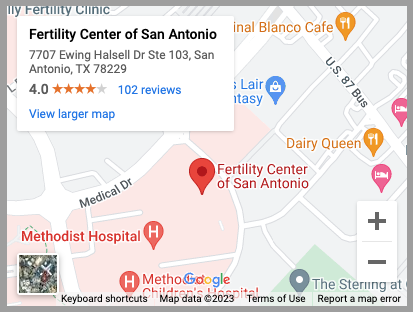Discover your path to parenthood today.
A tubal ligation, also known as having your tubes tied, is the process of cutting or blocking the fallopian tubes to prevent pregnancy and is meant to be a permanent form of birth control. Later in life, many women change their minds about expanding their family, and a tubal reversal can allow you to conceive again.
Intrauterine insemination (IUI) involves placing healthy sperm directly into the uterus during ovulation, close to a mature egg. IUI reduces the distance that sperm have to travel to reach the egg, improving their chances of fertilizing. IUI can sometimes be accomplished without the need for ovulation-inducing medications, and the non-invasive procedure is typically the first method we suggest to treat unexplained infertility and mild male infertility. It is also the standard procedure for artificial insemination if you require donor sperm to conceive a child.
In vitro fertilization (IVF) is a complex process involving numerous procedures that allow us to fertilize your mature eggs outside of your body, and then cultivate the embryos (fertilized eggs) before transferring them back into the uterus. IVF offers an impressive list of benefits, including the confirmation of normal fertilization and embryo development. During an IVF procedure, we can utilize your eggs and your partner’s sperm, or donor eggs or sperm, if necessary. IVF is often recommended after various other infertility treatments have failed. Additionally, it is possible to test the embryos for genetic abnormalities through embryo biopsy and preimplantation genetic testing through PGT-A (formerly PGS) and PGT-M (formerly PGD). We now also offer Nature’s IVF™, also known as INVOcell™, an alternative procedure that offers the right candidates similar success rates at a lower cost.
Fertilizing a mature egg during an IVF treatment is often achieved by combining sperm with eggs and allowing them to incubate overnight. Intracytoplasmic sperm injection (ICSI) is an alternate method used during the fertilization phase of an IVF procedure. If the male partner’s semen analysis suggests a low sperm count or other sperm-related infertility factors, then ICSI can often facilitate fertilization by directly injecting a single healthy sperm into each mature egg.
For hopeful parents frustrated by unsuccessful attempts to conceive, we offer counseling on lifestyle changes to boost fertility. We can help you understand how hormones, age, timing, weight, stress, and underlying medical conditions all interact to affect the ability to conceive. Once one of our experienced specialists has reviewed your medical history, they can recommend lifestyle tips such as stress management and healthy eating and exercise.
Donor sperm treatment can be an effective method of helping women and couples who have had difficulty conceiving. Using donor sperm as part of an IUI or IVF cycle can help couples overcome male infertility issues, as well as providing single women and same-sex couples an opportunity to have children of their own. Patients will have the option to use sperm from someone they know, such as a friend or a family member, or they may choose to use sperm from an anonymous donor as part of their fertility treatment.











